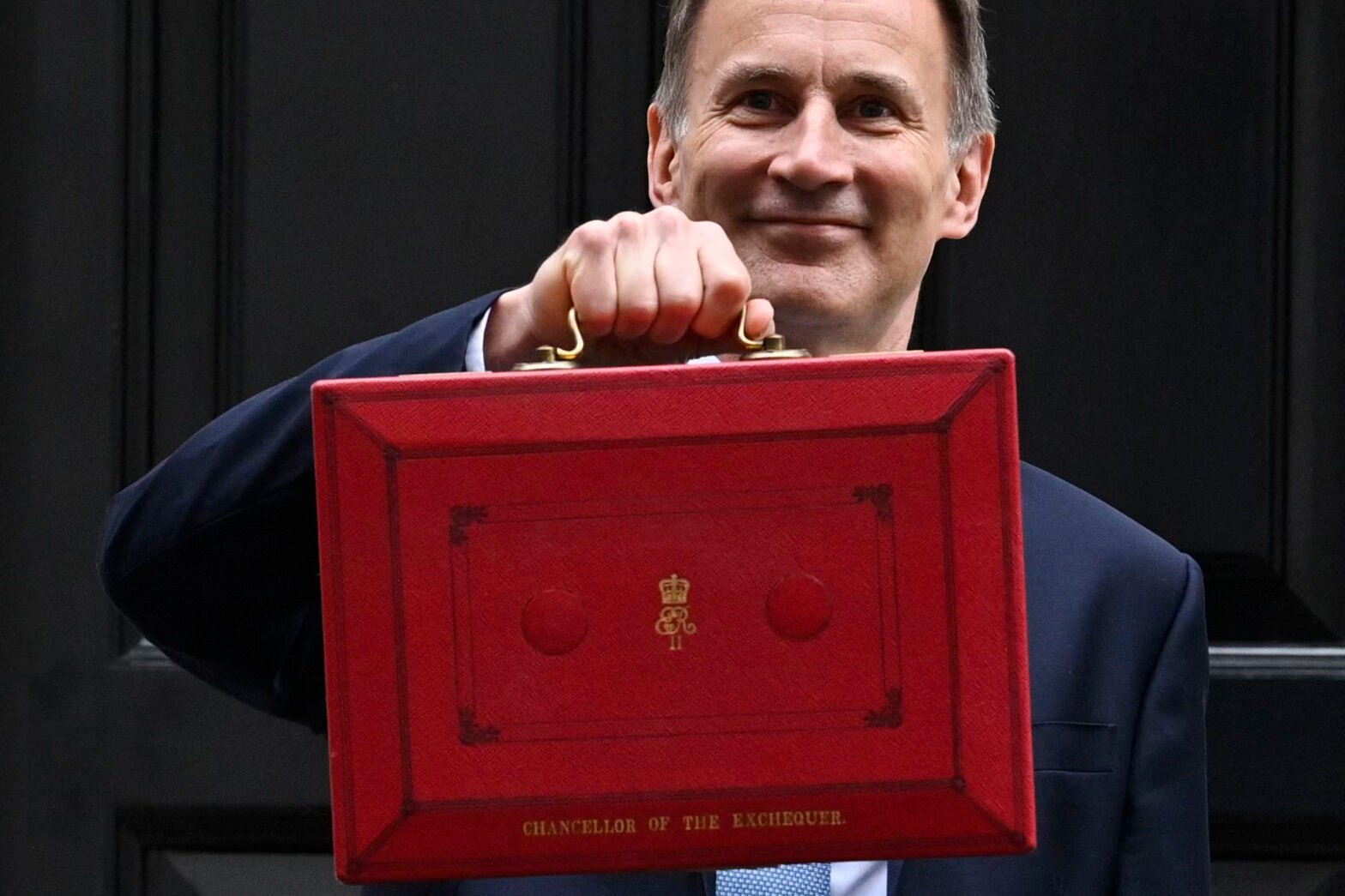
The Spring Budget: What Does It Mean For Small Businesses?
by Tara Covell
What does the spring budget mean for small business owners?
Chancellor Jeremy Hunt recently unveiled the UK government's spending plans in his Spring Budget announcement on March 15th. The announcement, which included tax changes and energy bill support, provided important insights for small businesses.
Now that the dust is settling on another Budget Statement from the Chancellor of the Exchequer, SME owners and entrepreneurs need to pay attention to the budget's key takeaways to plan their operations accordingly.
Here’s our guide to the bits that really matter.
Corporation tax is now 25%
As if small businesses didn't have enough on their plates with rising energy costs and supply chain issues, they now face another huge challenge as April approaches. The corporate tax hike proposed by then-Chancellor Rishi Sunak in March 2021 has finally come into effect after a series of ups and downs.
Kwasi Kwarteng blocked the rise from 19% to 25% as part of the October mini-Budget, but Chancellor Jeremy Hunt has since confirmed the government's commitment to the 25% corporation tax rate as planned. From 1st April, the main corporation tax rate will rise to 25% for companies with profits above £250,000. Small companies with profits of £50,000 or less will continue paying 19%, while those with profits between the two amounts will benefit from a marginal relief rate.
The HMRC has created a calculator for marginal relief to help businesses determine how much more they will need to pay. The lower and upper limits will be reduced for short accounting periods and when there are associated companies. If you operate more than one limited company, where one company is controlled by the other, the thresholds are also reduced.
While the Treasury states that 70% of companies will not be affected by the change, many are concerned that higher taxes will discourage investment. It remains to be seen how this will affect small businesses already facing significant headwinds in the current economic climate.

Energy Price Cap Increase Confirmed Despite Economic Challenges.
Despite the ongoing economic challenges and cost of doing business crisis, the energy bill price cap increase is still set to go ahead in April. This means businesses will receive a discount on wholesale gas and electricity prices instead of a fixed price. The Energy Bills Discount Scheme will continue until 31st March 2024.
However, households will benefit from an extension of the Energy Price Guarantee. The government recently confirmed that typical energy bills would be capped at £2,500 per month for the next three months - April, May, and June. This move is expected to save a typical household £160 per month starting from April.
Although this is good news for households, small businesses may struggle with the energy price cap increase at a time when they are already facing significant economic challenges. Despite these challenges, it is essential for businesses to keep a close eye on energy prices and find ways to optimize their energy consumption to mitigate the impact of rising energy costs.

Tax on pensions is changing.
In a bid to boost employment and stimulate the economy, the UK government has made significant updates to pensions in the Spring Budget.
Chancellor Jeremy Hunt announced that the pensions Lifetime Allowance would be abolished. This limit restricts the amount that can be saved into pension pots before tax becomes payable. The move is set to benefit those with higher-value pension savings, which would have been affected by the allowance.
In addition, Hunt revealed that the annual pensions tax-free allowance would increase from £40,000 to £60,000. This increase will provide greater flexibility and support for individuals who wish to contribute more to their pensions and save for their retirement.
These changes to pension taxation are welcomed news for those who are planning their retirement and looking to secure their financial future. It is crucial for individuals to keep up with the latest updates to pension policies to ensure they make informed decisions about their pension contributions and maximize their retirement savings.

UK Government Expands Free Training Opportunities for Over 50s.
The UK government has announced expanding its 'Skills Bootcamps' program for the over 50s. The scheme will offer more free training in sector-based skills and currently provides up to 16 weeks of free training with a guaranteed job interview at the end of the course.
Funding has been made available to offer more places to people of all ages looking to upskill or find new job opportunities. The announcement includes an additional 8,000 Skills Bootcamps places in 2024-25 in England, as well as 40,000 new Sector-Based Work Academy Programme placements across 2023-24 and 2024-25 in England and Scotland.
Employers can use Skills Bootcamps to recruit staff or to inform course content to address skills shortages in their sector. Expanding the Skills Bootcamps program is a welcomed move, providing greater support and opportunities for the over 50s to learn new skills and enhance their employability.

New Investment Zone Scheme to Boost Business Investment
The UK government has announced a new investment zone scheme in the Budget to encourage business investment in England. The scheme will provide £80 million of funding to each zone, which can be used for skills, infrastructure, tax reliefs, and business rates retention.
The new investment zone scheme will cover eight locations in England, including the West Midlands, Greater Manchester, North East, South Yorkshire, West Yorkshire, East Midlands, Teeside, and Liverpool. Additionally, there will be at least one investment zone each in Scotland, Wales, and Northern Ireland.
This new initiative is designed to stimulate business investment in regions that have been historically underserved and will provide a significant boost to local economies. The investment zone scheme will help to create new jobs and drive economic growth in areas that need it the most. The UK government's commitment to supporting business investment through these initiatives is an encouraging sign for the country's economic recovery.

New Investment Allowance for Businesses
Chancellor Hunt has unveiled a new investment allowance that will reduce the tax liabilities for businesses investing in new IT equipment, plant, or machinery. The new allowance means businesses can immediately deduct these costs from their profits.
In addition, a new tax credit will be available for small and medium-sized businesses that spend 40% of their expenditure on research and development. The government hopes this tax credit will encourage more businesses to invest in R&D, leading to innovation and growth in various sectors.
Furthermore, Hunt announced that tax reliefs for film, TV and video gaming would be extended. This move will provide a much-needed boost to the creative industry, helping to create jobs and drive economic growth.
Overall, the new investment allowance, tax credit for R&D expenditure, and extended tax reliefs for the creative industry demonstrate the UK government's commitment to supporting businesses and encouraging investment in innovation and growth.

5p Fuel Duty Cut Extended to Help Save Drivers Money
In a move that will relieve drivers, the UK government has announced that the temporary 5p fuel duty cut has been extended to April 2024. This measure was initially scheduled to end on 31st March but has now been extended to help ease the burden on motorists.
If the 5p fuel duty cut had not been extended, fuel duty was expected to rise with inflation in April, adding 7p a litre to the fuel cost. This extension will help to save drivers money on tax and provide some much-needed relief to those struggling with the cost of fuel.
Additionally, the chancellor has confirmed that there will be a freeze on fuel duty for the next 12 months. This move will further help to save drivers money on tax and provide some much-needed relief to those who rely on their vehicles for work or personal use.
Overall, the UK government's decision to extend the 5p fuel duty cut and freeze fuel duty for the next 12 months is a welcomed move for drivers nationwide. It demonstrates the government's commitment to supporting individuals and businesses relying on their vehicles and the importance of providing relief during these challenging times.
![]()
Childcare Reforms to Reduce Costs for Families and Providers.
Childcare costs have been a major concern for many families and providers, and the UK government has announced a series of reforms to address these challenges. Ahead of the Budget, the Treasury had been considering proposals from the Department for Education to expand free childcare in England.
As part of the reforms, the chancellor announced that parents of children between nine months and two years old now can access 30 hours of free childcare per week. Previously, only parents with children aged three and four were eligible for free childcare.
These reforms will be phased in with the aim of providing support to every eligible working parent of children under five by September 2025. This will provide much-needed relief to families struggling with the high costs of childcare.
In addition to the reforms for families, the UK government has also announced an increase in the hourly rate it pays providers. This increase will be effective from September 2023 and will help to ensure that childcare providers can continue to offer high-quality care while covering their costs.
Overall, the childcare reforms announced in the Budget are an important step towards reducing the burden of childcare costs on families and providers. The UK government's commitment to expanding free childcare and providing support to working parents is an encouraging sign for the future of childcare in the country.

In Summary.
The Spring Budget has presented a mixed bag for small and self-employed businesses. While some announcements could benefit them, others could pose challenges, especially given the ongoing economic challenges and cost of doing business crisis. Small business owners and the self-employed must stay updated with the latest updates to make informed decisions and take advantage of their opportunities.
Related articles

Kindness in Leadership: The Competitive Advantage Most Businesses Miss
Discover why kindness in leadership drives performance, trust and culture. TABcast insights on psychological safety, coaching and values-led growth.

How Strategic Alignment Workshops Drive Real Execution
Many strategy workshops create alignment in the room — but little action after. Learn how structured strategic alignment drives execution.

Why Accountability Breaks Down as Businesses Grow (And How to Fix It)
As businesses grow, accountability often slips. Learn why it happens and how leaders restore clarity, ownership, and execution.


